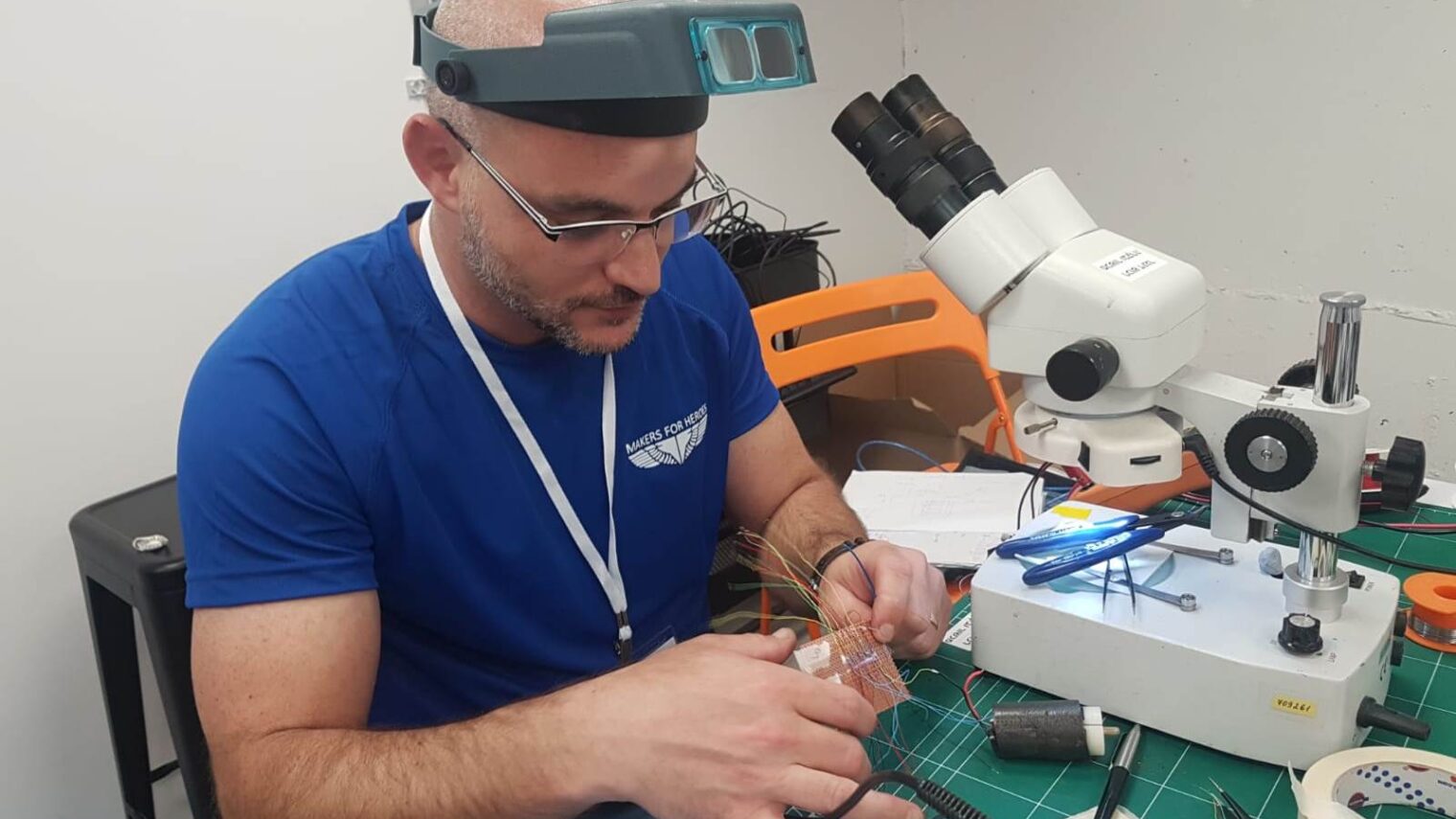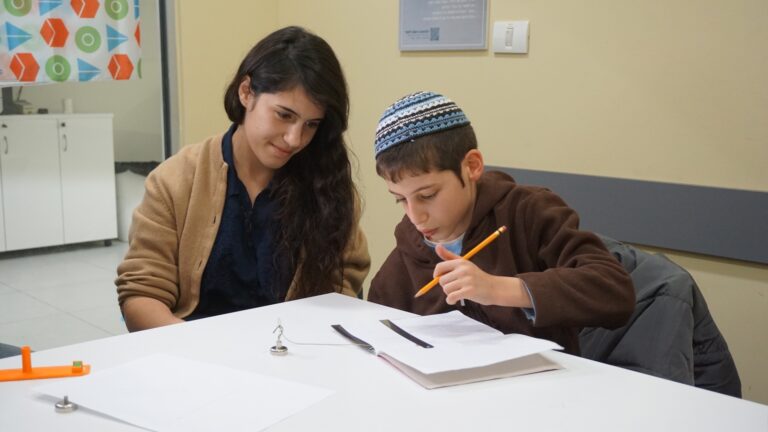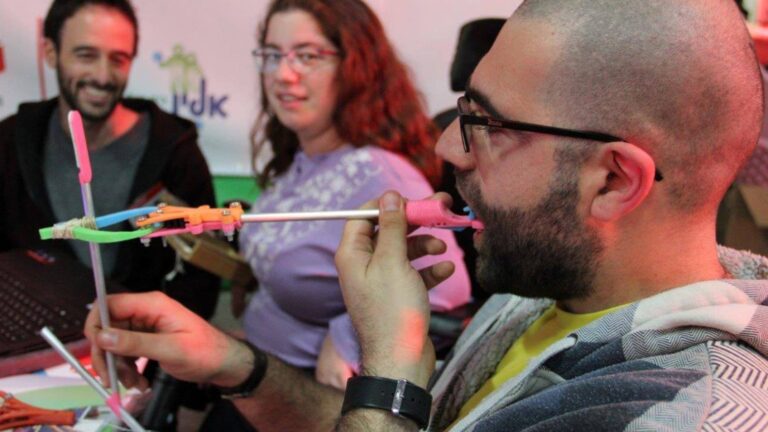Peter (“Pax”) Axelson has been confined to a wheelchair ever since his spinal cord was crushed in a training accident at the US Air Force Academy. When he travels by airplane, he often develops cellulitis infections due to poor circulation in his lower legs.
Hoping some Israeli out-of-the-box thinking would come to his aid, Axelson joined several other disabled American veterans at Makers for Heroes, a recent three-day makeathon marathon in Tel Aviv.
Volunteer “makers” including designers, programmers, engineers, physiotherapists, doctors and psychologists worked in teams to create 3D-printed working prototypes of devices that solve everyday challenges described by the participating 14 vets from Israel, the United States and France.
The team assigned to Axelson came up with a wearable solution that provides continuous sequential compression of his legs to assist with blood flow during air travel.
Makers for Heroes, held at the Reut Group’s state-of-the-art Impact Labs makerspace in WeWork HaZerem in Tel Aviv, was initiated by Israeli nonprofit Restart in partnership with the TOM: Tikkun Olam Makers initiative of the Reut Group. The French army and the US nonprofit Challenge America identified participants from those countries.
“TOM is a game-changing project that may revolutionize the way in which our societies address needs of people with disabilities, elderly and the poor. Naturally, it can make Israel a leader in addressing the special needs of wounded vets around the world,” said Gidi Grinstein, founder of the Reut Group and president of American Friends of Reut.
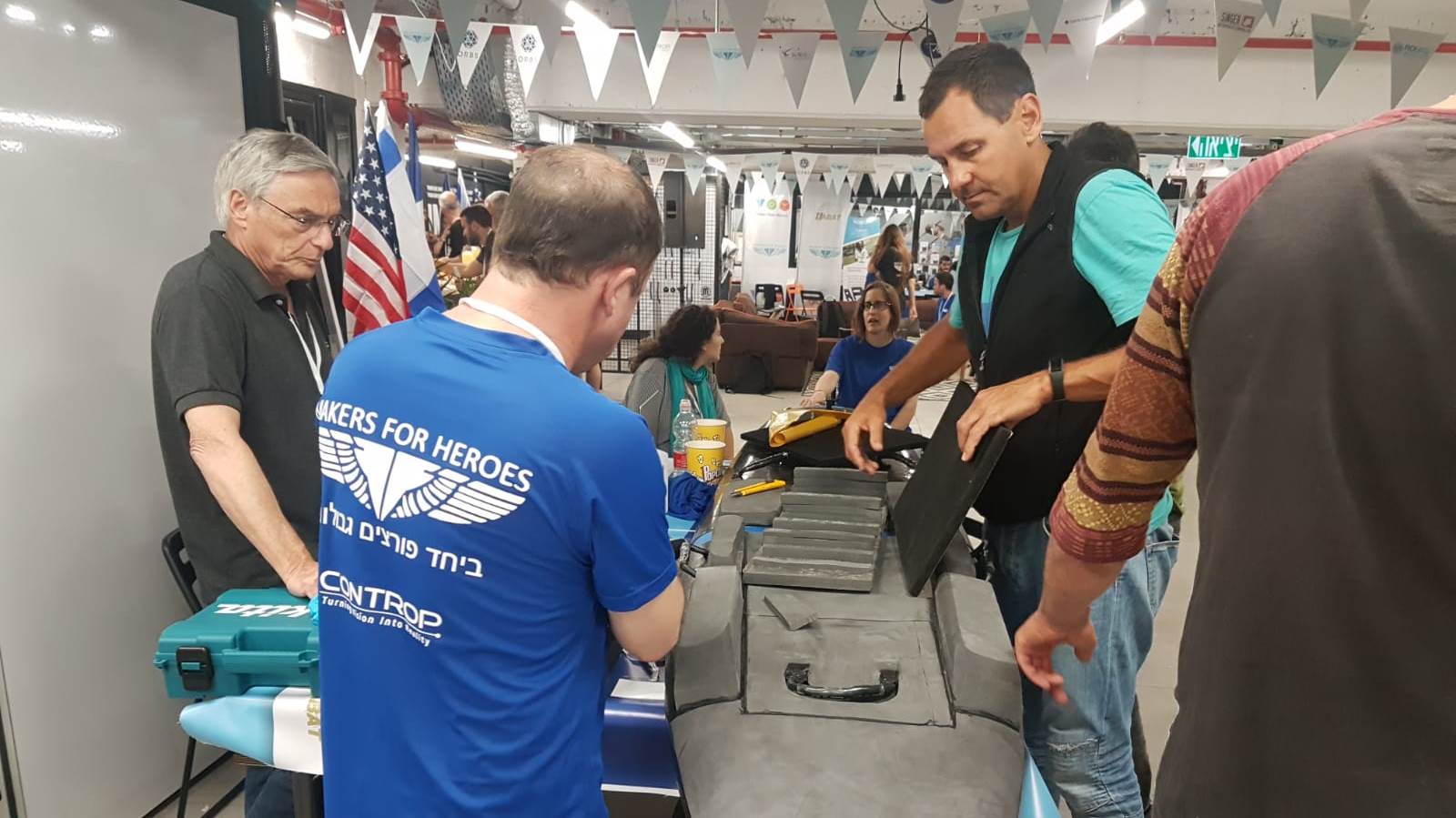
The 170 volunteer makers were recruited from Bank Hapoalim, Elbit, Controp, Singer, Orbs, the Air Force OPEC unit, BeWell organization, the Schusterman Foundation and Jerusalem Venture Partners (JVP).
Stratasys, the Israeli 3D-printer company, also sent volunteers and donated 3D printers to Impact Labs, which already houses dozens of 3D printers and technologies for carpentry, metalwork, sewing, robotics and laser cutting.
Biomedical engineer Ben Klein, product manager for medical modeling at Stratasys in Rehovot, was assigned to an Israeli war veteran who lost his leg nine years ago and has a problem with stability when playing wheelchair tennis.
“We had him come to Stratasys a couple of weeks before the event,” Klein tells ISRAEL21c. “We scanned the way he sits in his wheelchair and printed a custom-made seat that’s slightly at an angle to shift the center of balance. We had to order the right parts from different vendors. At the makeathon, we went through four or five designs and made pillows for him to stabilize his posture to a greater degree.”
The soldier plans to test the seat in an upcoming tennis tournament. Klein hopes to adapt the invention for others, perhaps in cooperation with the Israel Paralympic Committee.
Gadgets for heroes
Nevo Alva of Restart explains that the organization matches wounded soldiers with mentors during or after rehab to envision and achieve their next step in life, whether that’s finding a job or relearning a favorite hobby or sport.
Restart piloted Makers for Heroes last year to find solutions for everyday challenges of five Israeli veterans. This year the event had an international focus to broaden its impact. “It doesn’t matter where you were injured; you need to know you are not alone,” Alva tells ISRAEL21c.
The team assigned to US veteran Zarita, 33, who was injured shortly after returning from extreme training in Afghanistan, designed a stabilizing dance “companion” that will allow her to continue enjoying her favorite form of artistic expression without falling as a result of her dizzy spells.
Jeff, a US vet struggling with PTSD and anxiety, has a hard time explaining his condition when he goes out in public with his service dog. He left the makeathon with a device that has some of the benefits of a service dog but isn’t detectable in social settings.
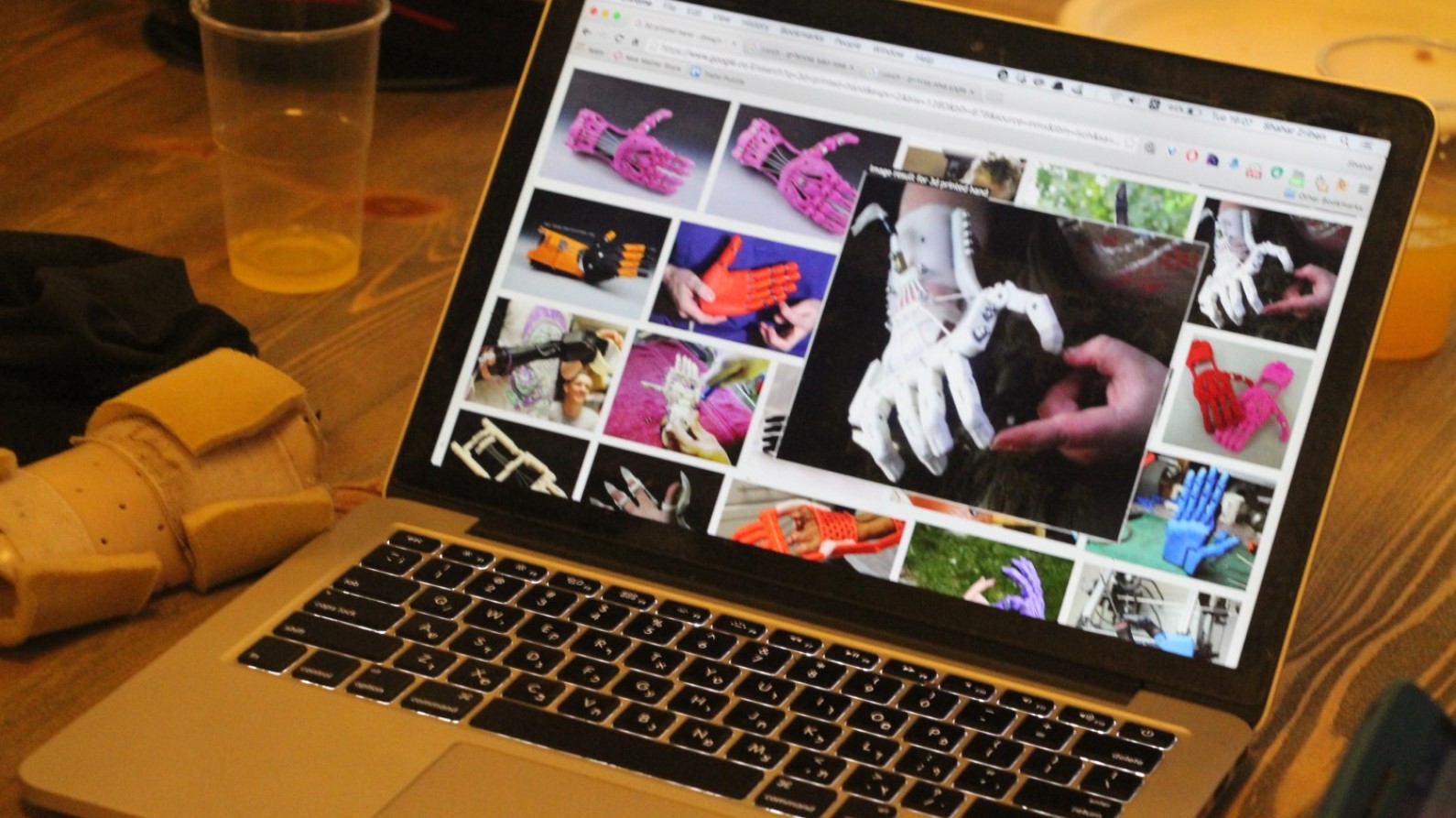
For Ann Marie, 45, an Air Force civil engineer who developed severe PTSD and also uses a service dog, Makers for Heroes devised a special vest for the dog to carry the items she and her owner need with them at all times.
Plans for the prototypes are available on the TOM platform to enable others with similar disabilities to benefit from the products, and they will be developed into replicable products through TOM, which has established a presence in 12 countries.
The wounded vets who flew to Israel for the makeathon enjoyed a tour in Jerusalem, a meeting with the Israeli disabled veterans’ organization at Beit Halochem Tel Aviv, yoga workshops, performances by guest singers, and a game between the Paralympic Basketball League and Maccabi Tel Aviv.
At the closing ceremony of the makeathon, the first-place prize was awarded to a personalized sensor system for the car of an IDF veteran blinded in one eye in the line of duty. Judges included Dr. Oren Barzel, director of the Orthopedic Rehabilitation Department at Sheba Medical Center in Tel Hashomer; and Rafi Kesten, managing partner of the JVP Venture Capital Fund.




